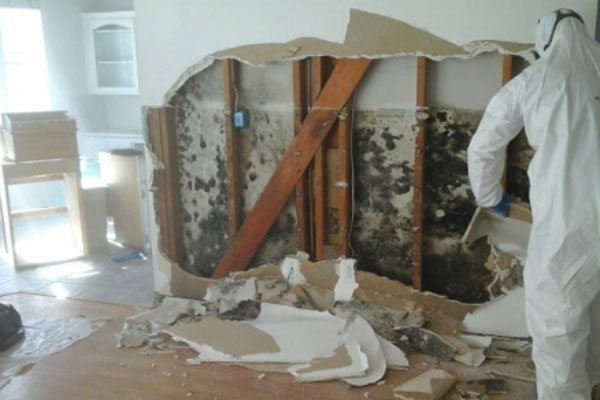Mold remediation is not an easy task. It requires proper attention from industry professionals and also post-remediation care. And considering the nature of the professional you go for, the costs can quickly stack up. But that’s just mold remediation. Usually, when you reach a stage where the professionals need to get involved, there is a high chance that you need other replacements too. Depending on the region of the home the mold is actively growing in, you might need to repair a few other things. So, what actually constitutes the cost of it?
The size: The size of the mold growth is one of the cost-determining factors. If the mold has just started to grow, then it would be cheaper to remediate as compared to when it has already spread over a large area.
The type: The type of mold also contributes to the cost. Some molds are more dangerous than others and require special handling. This can add up to the costs.
The location: The location of the mold is another important factor that affects the cost. Mold growing in hidden places is usually more expensive than those growing in open areas. This is because hidden molds are harder to reach and might require special equipment for removal, which can add up to the costs.
The state where you live: The state where you live can also affect the costs. Some states have higher rates for mold remediation as compared to others. One of the major reasons for the difference between states is that some states have more stringent laws regarding to it.
These are some major factors affecting the cost of mold remediation. Now, let’s talk about financing options. There are many companies out there that offer financing for mold remediation. The way all of these companies work is pretty much the same. While financing might seem unwanted for it, many companies offer interest-free financing, which might be beneficial in the long run.
The benefits of financing mold remediation:
There are a few benefits to financing mold remediation, such as:
-You can get the work done right away and not have to wait to save up the money.
-It can help improve your home’s value if you plan on selling it in the future.
-You may be able to deduct the interest on your taxes.
However, there are also a few drawbacks to consider before deciding whether or not to finance mold remediation. These include:
-The interest rates on loans can be high.
-You may end up paying more interest than the actual work cost.
-Your credit score could be impacted if you cannot make the payments on time.
If you’re considering financing mold remediation, research and compare offers from different lenders before deciding. You should also speak with a tax professional to see if the interest on the loan could be tax-deductible.
Do people even consider financing mold remediation?
In 2021 alone, almost 78% of Americans have considered taking out a loan to cover the costs of home repairs or improvements. Of those, 35% say they would definitely or probably use a loan for major home repairs or improvements, such as mold remediation.
So, should you finance your mold remediation? Ultimately, the decision comes down to what’s best for your situation. If you can pay for the work upfront, that’s usually the best option. But if you need to finance the work, shop for the best interest rates and terms before deciding.
Do you need financing even if you have insurance?
In short, the answer is no. Your insurance should cover mold remediation costs as long as you have a policy that includes coverage for mold damage. However, keep in mind that there may be some out-of-pocket expenses, such as your deductible, that you will need to pay. Additionally, your insurance company may require you to use a certain type of contractor or provider, which could impact the cost.
If you’re unsure whether your insurance policy covers mold remediation, give your agent a call and ask about it. They should be able to tell you what’s included in your policy and how much coverage you have for mold damage.
When it comes to mold remediation, the best thing you can do is to be proactive and have regular inspections done on your home. This way, you can catch any problems early on and avoid paying for a major remediation project. If you do find mold in your home, don’t panic. Many reputable companies offer effective and affordable mold remediation services.
If you’re considering financing for mold remediation, remember to compare offers from different lenders and speak with a tax professional about the deductibility of the interest. And most importantly, don’t wait until the problem gets too big – being proactive is key to avoiding costly repairs down the road.


